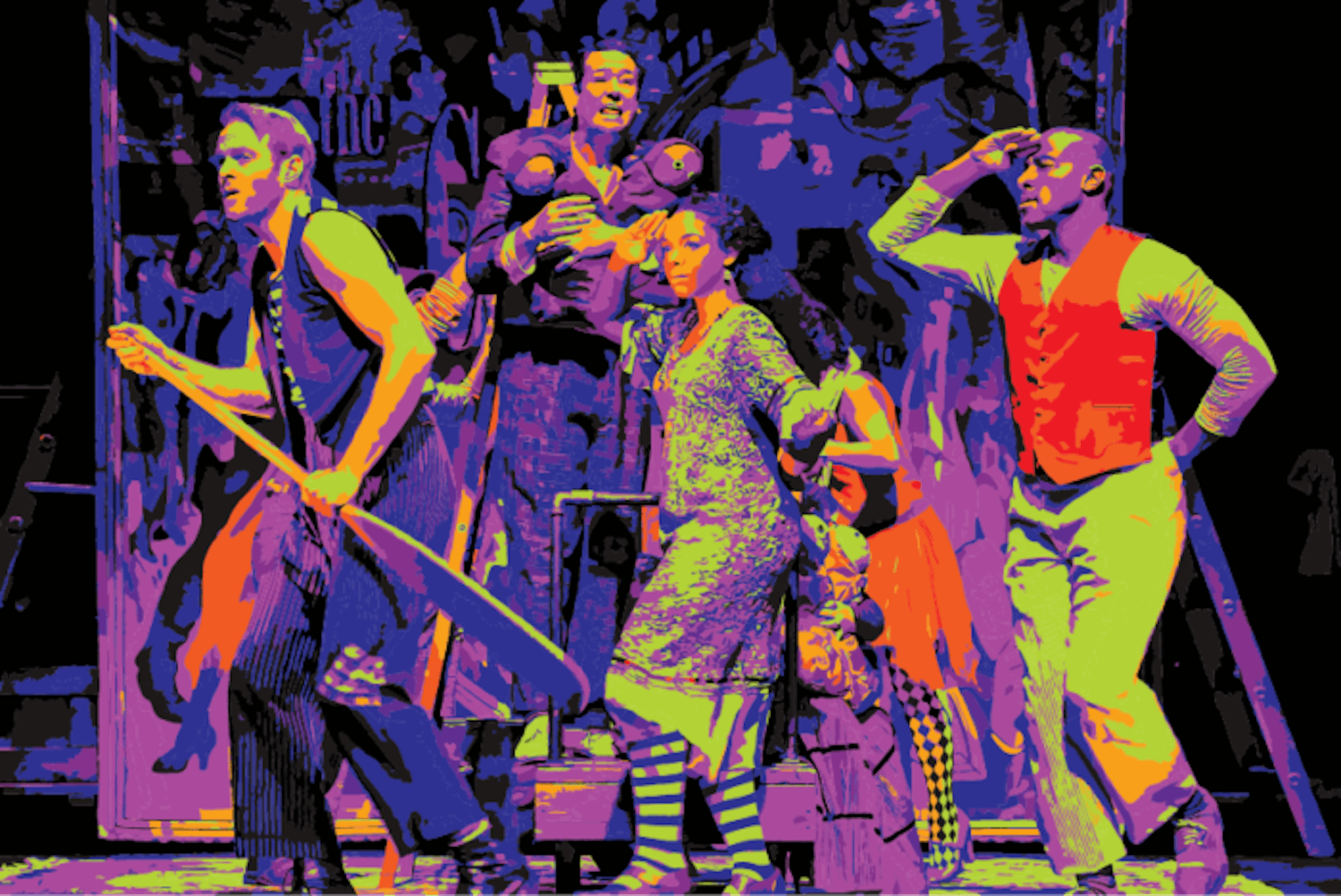
Situated in a gorgeous theater on Navy Pier, the Chicago Shakespeare Theater’s current run of “The Comedy of Errors,” directed by Barbara Gaines, is one not to be missed. The play is one of Shakespeare’s earlier comedies and features two sets of twin brothers, Antipholus and Antipholus and their servants Dromio and Dromio, who are separated at birth by a shipwreck and eventually end up in Ephesus at the same time. Antipholus and Dromio of Ephesus live there while Antipholus and Dromio of Syracuse travel there. A series of instances of mistaken identity is born from this, and hijinks ensue.
In Gaines’s take on the play, she turns “The Comedy of Errors” into a play-within-the-play, a trope that appears in several of Shakespeare’s other works including “A Midsummer Night’s Dream” and “Hamlet.” In her version, “The Comedy of Errors” is a movie being filmed in London during the World War II blitz in 1940. For this production, Ron West wrote the studio scenes, which function as a frame to present Shakespeare’s comedy. This creates a layering of the two comedies when the “real life” problems of the actors from 1940 influence how they play their Shakespearian characters, adding new dimensions to the humor already present in Shakespeare’s play.
For example, in “The Comedy of Errors” Antipholus of Syracuse (Robert Petkoff) falls in love with Luciana (Melanie Brezill), the sister of Antipholus of Ephesus’s wife, and there is a scene where he tries to woo her before she rebuffs him, thinking that he is her brother-in-law. While this is funny when played straight, in this production, the 1940 actor who plays Antipholus of Syracuse — Emerson Furbelow — has terrible breath. This results in Alice Boggs, the 1940 actress who plays Luciana, trying to get as far away from him as physically possible; he stinks while chasing her around the stage as she rebuffs him for cheating on her sister. The play was rife with this type of layered comedy. There are also periodic air raids, a food fight and the 1940 cast having only 36 hours to film the movie because the government wants to shut it down.
The frame and each actor playing two characters only added to “The Comedy of Errors.” While it did remove the focus of the play from Shakespeare a bit, it helped turn the play into a completely new production featuring both Shakespeare’s classic jokes born of the mistaken identity plot and word play as well as more modern forms like slapstick and physical comedy side-by-side. At the same time, the new scenes written by Ron West were a whole new, bonus play. This layering made the play even funnier while the use of the play-within-a-play trope added a little extra Shakespearian to the production. All the actors navigated the challenge of playing two characters beautifully, and the way their 1940 characters transformed into their Shakespearian characters enriched the comedy by creating even more errors within “The Comedy of Errors” because of their personal drama.
The sets and costuming were also phenomenal. The stage transformed the Chicago theater into a London soundstage equipped to film a Shakespeare play facing the horrors of the blitz. At one point, during an air raid, one of the lights of the Chicago theater dropped from the ceiling, fully integrating the Chicago theater and London soundstage into one, which created a triple layering effect where the audience was in Chicago, London and Ephesus at the same time. Combining this with a beautiful array of 1940s-style costumes in a vibrant color palette made for a visually stunning production.
Overall, this production of “The Comedy of Errors” succeeds in transforming Shakespeare’s play into something new while expertly delivering multiple layers of humor that will keep you laughing out loud.
Title: “The Comedy of Errors”
Director: Barbara Gaines
Produced by: Chicago Shakespeare Theater
If you like: “Much Ado About Nothing”
Shamrocks: 5 out of 5
Read More
Trending









